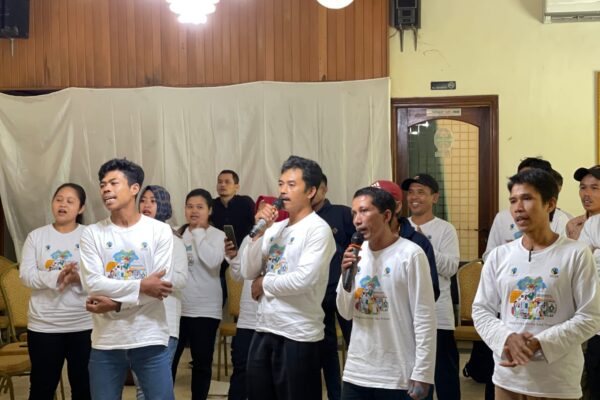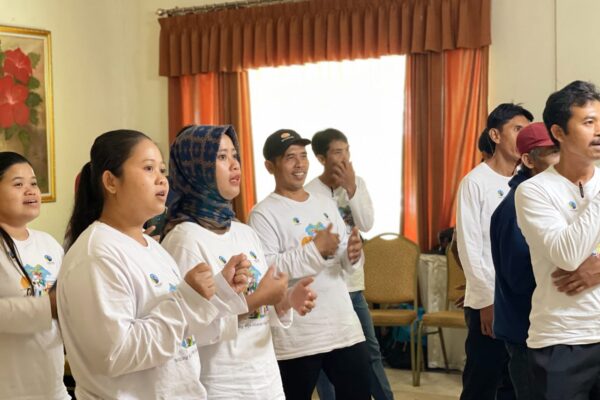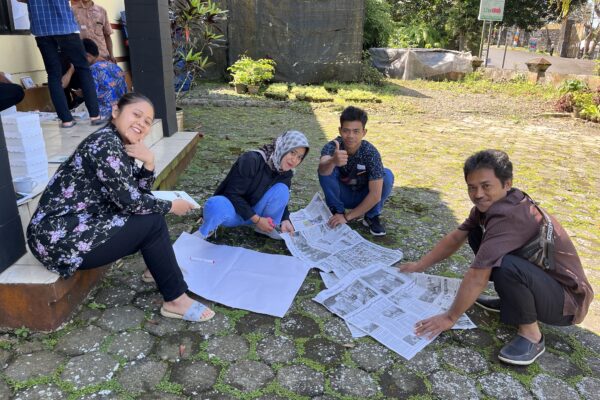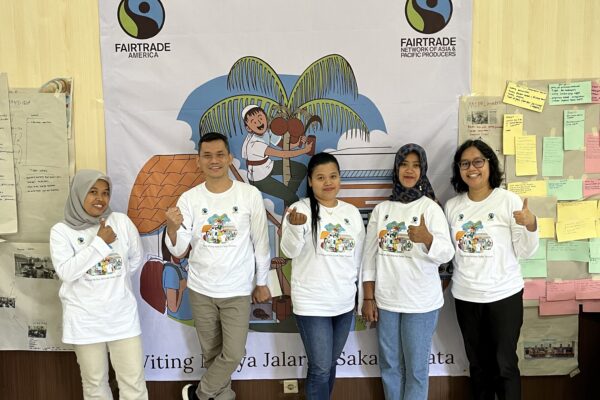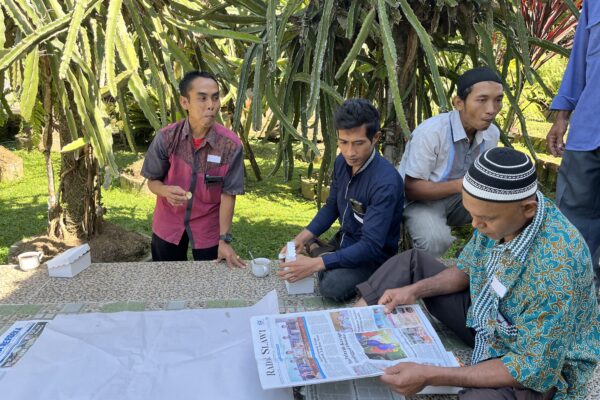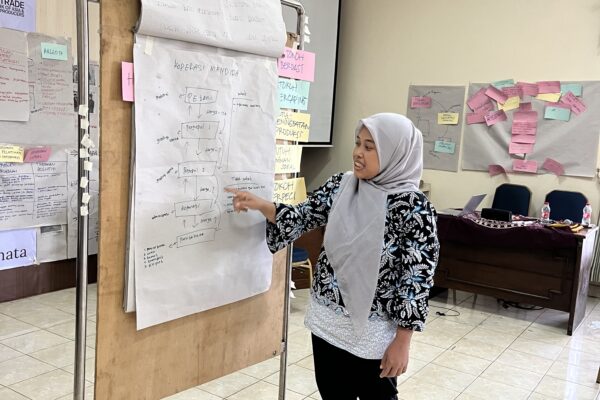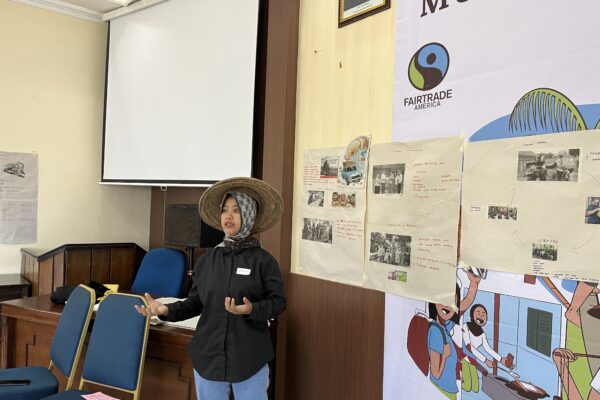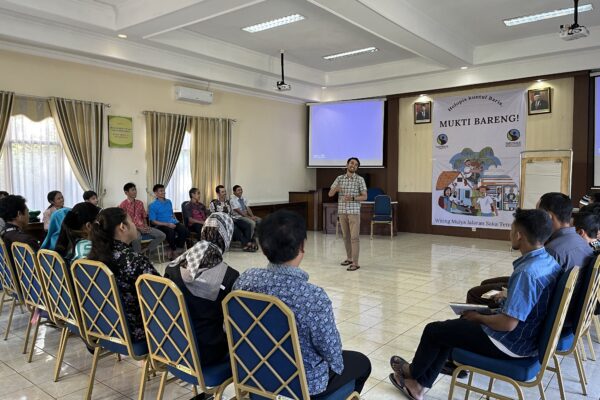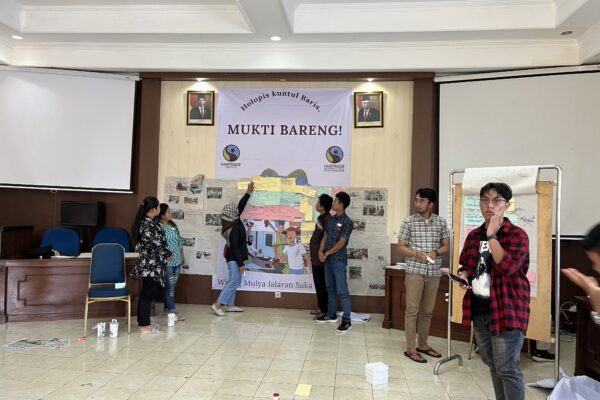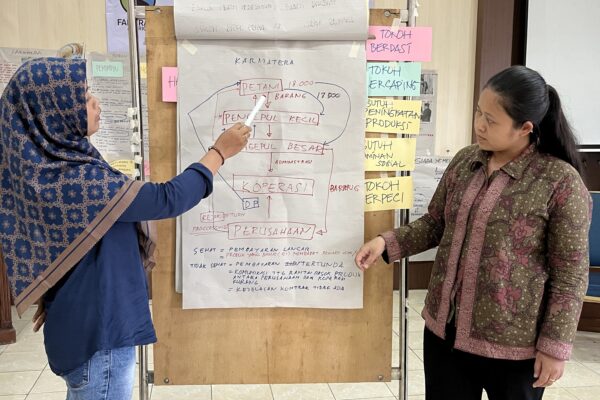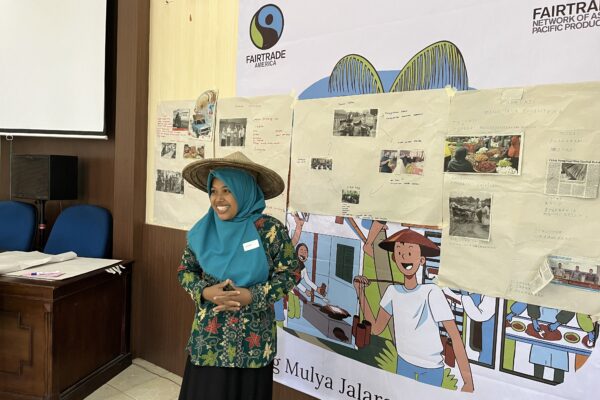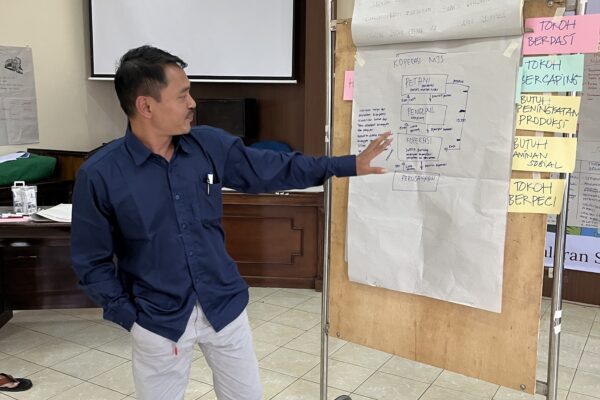Despite the slowdown of the global market and the disruption of export shipping due to the pandemic, the demand for Fairtrade coconut sugar in Indonesia is still increasing and promising. Indonesia is currently the biggest coconut sugar exporting country in the world with the coconut sugar export from the country reaching a volume of 333.930 tons in February 2020 with a value of 171.230.000 USD. The export volume is expected to increase by 10 % per year. It is mainly exported to the USA (68%), and the rest 22% goes to EU countries (German, Netherlands), Brazil, South Korea, Malaysia, Singapore, and Australia.
Under the Fairtrade system, Indonesia is the leading coconut sugar exporting country with currently 4 certified small producers’ organizations (SPOs) and 3 small producer organizations joining as successful applicants. Approx. 5000 smallholder coconut sugar farmers are part of the 7 Fairtrade organisations.
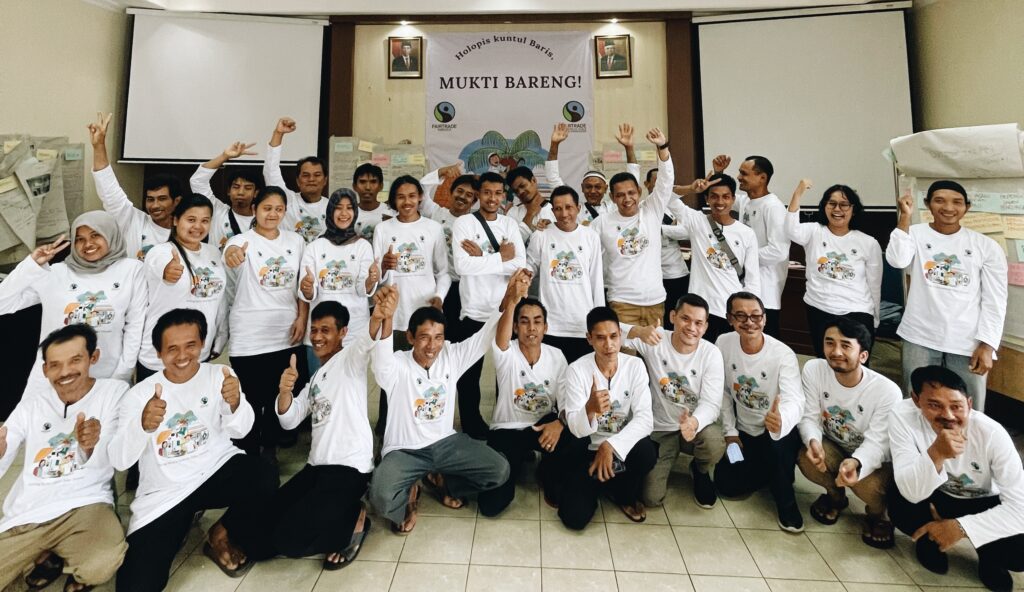
However, there are a number of challenges that have to be addressed in order to realize a strong and capable cooperative:
- The idea of a proper cooperative and farmers’ empowerment is still rather foreign for the majority of the coconut sugar farmers. The majority of coconut sugar farmers are not particularly well versed in the issues of their collective rights, farmers’ organization, and agricultural commodities trading.
- The majority of coconut sugar farmers are still in somewhat patronizing relationships with the local level collectors.
- The majority of coconut sugar farmers lack formal education and this leads to having special requirements in the delivery of education about cooperative for adult members.
- The majority of coconut sugar farmers are above 45 years old and the coconut sugar sector in Java Island faces the threat of having no successors in the near future and now already lacking young farmers. The children of the farmers and young people living in the villages of coconut sugar cooperatives are reluctant to be coconut sappers. The profession is perceived to be underclass as well as unsafe due to the risk of injury or fatality by falling from the coconut trees that can have a height of up to 30 meters.
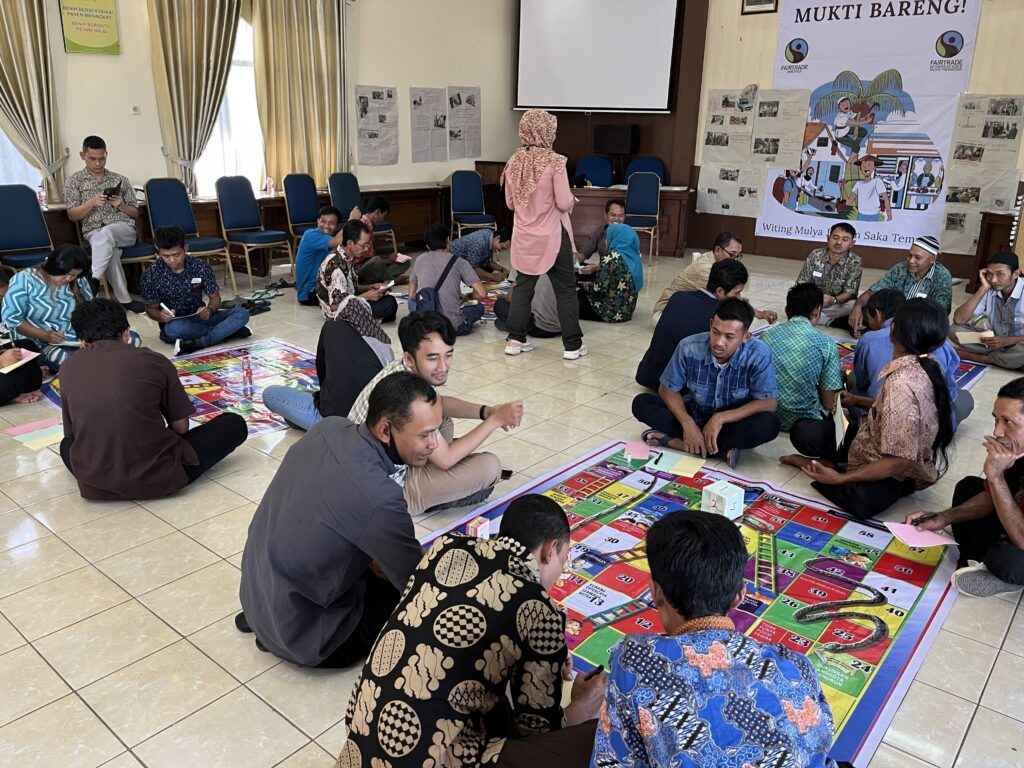
Fairtrade NAPP sees the importance of overcoming these challenges as vital to the further development of the producer organizations and Fairtrade supply chain which requires a continuous capacity-building effort. Empowerment at the grassroots will strengthen the bottom-up participatory process of developing the SPO, which is the core and the highest order of a cooperative and its democratic organizational decision-making.
A strong farmer leadership will support the transformation of coconut sugar SPOs into a fair and sustainable farmer organization which are the prerequisites for a healthy and strong supply chain that includes democratic small producers’ organizations. Transforming a group of farmers to work together in the arrangement of a cooperative cannot happen overnight, it may take a lengthy process and the support of empowerment from interested stakeholders
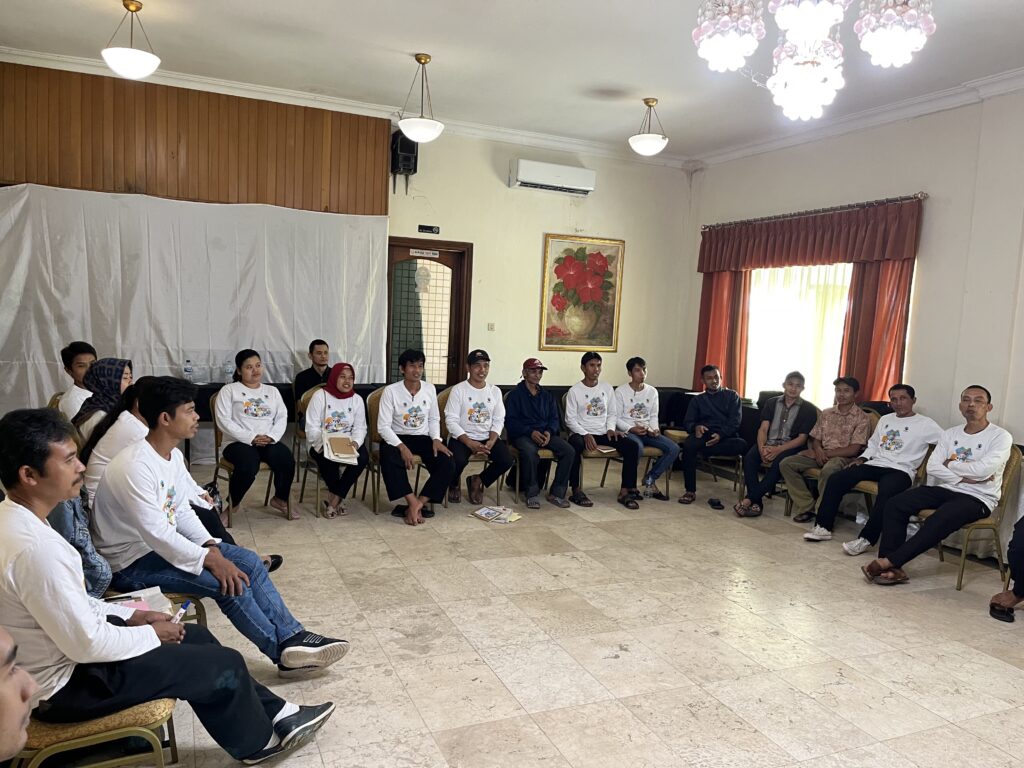
Therefore, in collaboration with Fairtrade America, Fairtrade NAPP launched a capacity-building initiative that aims to develop farmers’ leadership in the Fairtrade-certified coconut sugar producer organisations in Indonesia. The initiative has been a meaningful milestone in terms of the recognition of Indonesian coconut sugar by the market and wider Fairtrade system, which also happens to be the first collaborative effort of Fairtrade NAPP with a National Fairtrade Organization in building the capacity of coconut sugar producers.
An intensive farmers’ leadership building program was jointly developed and designed by Fairtrade NAPP and Fairtrade America based on the attempts to address the current challenges in such transformation. It was carried out through the methodology of adult education and learning covering topics on farmers’ organization, leadership, cooperation, and supply chain. The program was delivered through a series of training and personal coaching by Perhimpunan Setara, a local non-governmental organization with the requisite expertise in the development of coconut sugar farmers’ leadership, cooperation, and supply chain.

24 coconut sugar farmers from 5 coconut sugar cooperatives/SPOs in Java Island were selected through a dedicated selection process conducted by NAPP and Perhimpunan Setara. The project was implemented through a 03- phase training on building “ Farmers Leadership in Fairtrade Coconut Sugar Cooperatives in Indonesia” with the main aim of strengthening the farmer’s leadership within Fairtrade coconut sugar small producers’ organizations (SPOs) and coconut sugar supply chains in Indonesia.
The first two phases of training were successfully completed in the 3rd and 4tt quarter of 2022. In the first phase, the participants were trained on “Cooperative as the organization of coconut sugar farmers and coconut sugar supply chain” where much emphasis was laid on the foundational understanding of the importance of organized farmers, cooperative, and international-modern coconut sugar trading, and supply chain.
The farmers were able to gain awareness and knowledge of their participatory rights and obligations as members of the cooperative and as a part of the cooperative supply chain. At the end of the training, the participants developed individual and collective action plans to be implemented at the level of farmers’ groups and cooperatives. The plans include diverse initiatives such as the improvement of coconut sugar traceability, the strengthening of farmers’ group meetings as a part of the cooperative’s governance, the improvement of coconut sugar quality and other initiatives. Its implementation is being supported by Perhimpunan Setara and Fairtrade NAPP through a series of coaching sessions.
The second phase included more advanced training focused on ‘Business management in the cooperative and commercial arrangement of coconut sugar in the supply chain” where the participants brainstormed on the challenges and opportunities of the governance and business management situation in their respective cooperatives.
The final phase of the training will be imparted by Fairtrade NAPP on Fairtrade Standards and Principles and will resume in 2023.


